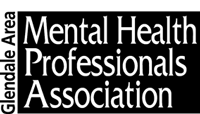Training and Supervision for Mental Health Professionals
Sexuality Training and Supervision for Licensed Mental Health Professionals
As a sex therapist for over 30 years, I’ve spent thousands of hours talking to people about sex. It is clear—our culture is profoundly uncomfortable with sex, yet obsessed with it at the same time. We have a love/hate relationship with sex. Competing signals and mixed messages about sex cause confusion—setting people up for shame, guilt, and conflict. Messages from media, parents, religion, and peers shape our notions about sex (often inaccurately). We spend the rest of our lives trying to make sense of it all.
It is often liberating for clients to discuss their sexuality in therapy. Many clients report that they have never shared aspects of their sexual feelings, behaviors, fantasies, etc with another person. Others report that when they’ve attempted to do so, it has been disastrous. Memories and experiences that shape our sexual development can hold the key to so many locked doors, but only if we are able and willing to take our clients there.
Our clients want and need to talk about sex, yet many therapists feel ill-equipped and awkward discussing sexual matters with clients. They worry that they won’t know what to ask or how to respond. They worry that they will come across as judgmental or sexually inexperienced. They worry that they are invading the client’s privacy. They worry they will become aroused or unwittingly arouse the client. “What if I laugh in her face; or find him repulsive?” “What if I disapprove of their lifestyle?” These worries often deter therapists from opening this type of sexual dialogue.
First and foremost, please believe that your clients want to talk about sex. They expect you to bring it up. If you do not set a precedent (early in treatment) that sex is absolute fair game, your clients will be reticent to initiate a meaningful conversation about sex and the role it plays in their lives.
So how does one comfortably discuss sex with clients? Well, prior to handling sexual material with clients, it is imperative that you are insightful about your own sexual biases, hang-ups, proclivities, etc. Having a bias is not the problem; allowing it to get in the way is the problem. You must also be familiar with the three core components of sexual identity: 1) Gender Identity, 2) Orientation, and 3) Intention. In addition, it is helpful to understand the complex phases of sexual response—desire, arousal, orgasm, and satisfaction (and what can go wrong in each phase). It is important to know how male and female sexual response differs.
Next, you should be able to determine if a symptom is lifelong vs. acquired, global vs. situational, or organic vs. psychogenic. I do not expect all therapists to become experts in clinical sexuality. However, having basic comfort with (and knowledge of) sexual matters can go a long way toward a client’s sense of safety. If a client’s sexual concern feels far beyond your scope of practice or comfort level, it is appropriate to refer him/her to a qualified sex therapist.
Allowing your clients to explore the meaning of sexuality in their lives (both currently and historically) can not only help move therapy along, but can be life-changing. Therapeutic exploration of sexuality is one of the most powerful, intimate, and supportive ways we can help our clients achieve well adjustment and overall life satisfaction.
I offer individual and group training to licensed mental health professionals who want to add dimensions of clinical sexuality to their practices. Options include:
- 18-hour Introductory Course
- 12-hour Advanced Course
- Comfort-Inducing Sexuality Dialogue (CISD) (my proprietary model)
Training can be tailored to your specific areas of interest.
Kimberly also provides supervision to clinicians seeking professional development in sexual health.
For more information on training programs and fees, please click here or call 818-334-5811.
Clinical Sexuality Training
Contact Me
"*" indicates required fields











